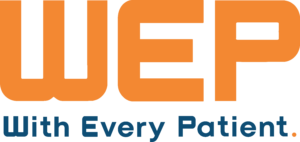6th Expanded Access Progammes World Congress 2024 Europe
Thursday 11th - Friday 12th April 2024
Facilitate Live is very pleased to welcome you to our upcoming 6th Expanded Access Programmes World Congress 2024 Europe.
Early access programmes offer ethical, compliant and controlled mechanisms of access to investigational medicinal products (IMP) outside of the clinical trial space and before marketing and authorisation.
Expanded Access also known by other terms such as compassionate use, early access, managed access, named-patient access, or pre-approval access is a potential pathway for a patient with an immediately life-threatening illness or severely debilitating disease or condition to gain access to an investigational medical product (drug, biologic, or medical device) before they are reviewed and approved by a regulatory authority. When it is not possible for a patient to participate in a clinical trial and all other available medical options have been exhausted, the patient’s physician may seek special access to investigational medicine outside of the clinical trial setting. As investigational drugs have not yet received regulatory approval, it is very important to remember that their potential risks and benefits are not yet established. In general the person and his or her doctor must apply for access to the investigational product, the company has to choose to cooperate, and the medicines regulatory agency needs to agree that the risks and possible benefits of the drug or device are understood well enough to determine if putting the person at risk has sufficient potential benefit.
With patients thoroughly becoming knowledgeable, Pharmaceutical companies are bound to receive unsought request. However, there are challenges and obstacles such as diverse regulatory landscape, logistical differences, and complexities from planning an application to approval and implementation. Sponsors need to plan carefully before undertaking an Expanded Access Programme so that they have the resources, processes, and tools in place to support the inevitable demand. EAPs promises huge potential to all stakeholders involved, from patients who obtained the medicines early to the pharmaceutical companies who provides it. Companies who invest in them may see considerable benefit in terms of relationship building with key stakeholders, such as patients, advocacy groups, scientists and regulators, as well as launch preparedness.
The two-day Congress will provide an interactive, cutting edge and comprehensive discussion and networking format led by key expert speakers with intimate knowledge in the industry. Gain practical strategies and best practices on challenges, innovations, technologies and concepts in obtaining the much needed access to these therapies for life changing treatment.
We look forward to meeting you at the Congress!
Sincerely yours,
Jocelyn Raguindin
Conference Director
Paradigm Global Events / Facilitate Live

GAIN THE LATEST INSIGHTS ON:
- Understanding the varying regulatory landscape, policies and guidelines to ensure a smooth execution of the programme
- The benefits and issues surrounding expanded access programme
- Criteria that must be met to authorize expanded access use, requirements for expanded access submissions
- The current compassionate use, or expanded access-related mechanisms
- Understanding operational complexities, best practices and strategies in running a global EAP
- Current trends and lessons learned from successful implementation
- Successfully navigating supply and logistical intricacies
- Incorporating patient voice from early planning to ensure a patient-centric access programme
- Robust data collection strategies for informed decision making
- Real-world data challenges and solutions
- Engaging representatives from all stakeholder groups to understand their perspective and
expectations of the programme
WHO SHOULD ATTEND?
This Congress will provide information to pharmaceutical and biotech companies, researchers, physicians, institutional review boards (IRBs), patient organizations and advocates, and regulatory agencies about the implementation of expanded access to investigational drugs.
Network with representatives involved in the following areas:
- Expanded Access
- Managed Access
- Early Access
- Market Access
- Medical Affairs
- Regulatory Affairs and Policy
- Patient Support and Patient Engagement
- Corporate Development
- RWE, and Data Management
- Quality and Compliance
- Clinical Development Programme
- Management
- Supply Chain Management
- Patient Access
- Clinical Research
- Sourcing and Logistics
- Consulting
- Marketing and commercialisation
- Licensing and authorisation
- Pricing and reimbursement
- And much more…
- Day 1 11/04/2024
- Day 2 12/04/2024
- Auditorium 1
 Robert Donnell, EVP, Medicines Access, Smartway Pharma
Robert Donnell, EVP, Medicines Access, Smartway Pharma
OVERVIEW OF EUROPEAN REGULATORY LANDSCAPE
- Understanding the challenges in planning and implementing a global EAP
- Country specific framework and requirements to access investigational drugs
- Scientific elements and regulatory tools available to address the challenges and explore the flexibility within the current regulatory systems
- Significant degree of administrative effort required to initiate the programme for a timely access
- How far are we from establishing a harmonised guidelines across Europe
Panelist: Nora Pöntynen, Global Medical Affairs, Boehringer Ingelheim International GmbH
Nora Pöntynen, Global Medical Affairs, Boehringer Ingelheim International GmbH Robert Donnell, EVP, Medicines Access, Smartway Pharma
Robert Donnell, EVP, Medicines Access, Smartway Pharma
Dr.Dinesh Kumar, International Medical Director, Alnylam UK
- Overview of the access journey in the UK
- Investigation of the benefits and challenges of Brexit for early and expanded access
- How early access can benefit patients
- Gaps in the UK against other countries
- Where VPAS 2024 dropped the ball
Where access could go in future
 Gordon Lundie, Executive Director, Market Access and Pricing, Gilead Sciences
Gordon Lundie, Executive Director, Market Access and Pricing, Gilead Sciences
- Patients are well informed and capable of understanding where in the world treatments are available through expanded access
- Not every regulatory framework is favourable and this can lead to inequality and a frustrated patient community
 Cameron Miller, Director of Policy & Strategy, The Brain Tumour Charity
Cameron Miller, Director of Policy & Strategy, The Brain Tumour Charity
STRATEGIES AND CURRENT TRENDS
- Defining key milestones and timelines effectively
- Selecting the appropriate stakeholders for involvement
- How to effectively manage communication and leadership when multiple companies are involved
 Ana Tediosi, Head of Expanded Access Strategy, WEP Clinical
Ana Tediosi, Head of Expanded Access Strategy, WEP Clinical

- Integrating an EAP with the therapy clinical and commercialization plan
– Internal stakeholders
– Alignment on objectives
– Optimal timings for planning and initaition
Working with external stakeholders
– Stakeholder mapping
– Engaging with patient and advocacy groups early in development for well informed decision
– Considerations in planning EAP’s with patient in mind
Practical guide to initiation
The link to Market Access
 Robert Donnell, EVP, Medicines Access, Smartway Pharma, a leading provider of Early / Expanded Access Programs (EAP).
Robert Donnell, EVP, Medicines Access, Smartway Pharma, a leading provider of Early / Expanded Access Programs (EAP).
![]()
- The Landscape
- A UK perspective
- The Good, The Bad & The Ugly
- What does this mean for patients and their future
- Next Step
 Bob Stevens, Group CEO, MPS Society
Bob Stevens, Group CEO, MPS Society
MULTI-STAKEHOLDER APPROACH & COLLABORATION
- Defining guiding principles
- Determining the key stakeholders
- Considerations for a decision-making framework
 Jennifer Grigonis, Sr. Director Business Development, EAP, Bionical Emas
Jennifer Grigonis, Sr. Director Business Development, EAP, Bionical Emas

- Why do we need early access programs
- What value do they bring and to who
- What are the opportunities and challenges
- Who should you engage with and when
 Sheela Upadhyaya, Chair Elect, Rare Disease Special Interest Group, ISPOR
Sheela Upadhyaya, Chair Elect, Rare Disease Special Interest Group, ISPOR
- The market access perspective – when and how expanded access is helpful
- Expanded access in the context of the overall access strategy
- Going beyond the large countries to a global strategy
 Katja Berg, Innovative Value and Access Strategy, AstraZeneca
Katja Berg, Innovative Value and Access Strategy, AstraZeneca
- Being inclusive to HIV+ patients
- When the patient disagrees – Dealing with online petition
- The right to a second-opinion following a rejection
 Menno A. Kiel, Global Medical Leader, Research Physician & Health Economist, Roche
Menno A. Kiel, Global Medical Leader, Research Physician & Health Economist, Roche
- The importance of patient advocacy in providing a much-needed information on EAP’s available for patients
- Collaborating with one another to enable a much richer understanding of patient needs
- Patient groups importance in working with health authorities to advance policies that accelerates patient access to investigational medicines
- Creating a state-of the art payer engagement strategies to address challenges in pricing and reimbursement
 Katja Berg, Innovative Value and Access Strategy, AstraZeneca
Katja Berg, Innovative Value and Access Strategy, AstraZeneca Paul Blakeley, Sr Policy Advisor, Health and Life Sciences, Tony Blair Institute for Global Change
Paul Blakeley, Sr Policy Advisor, Health and Life Sciences, Tony Blair Institute for Global Change
 Cameron Miller, Director of Policy & Strategy, The Brain Tumour Charity
Cameron Miller, Director of Policy & Strategy, The Brain Tumour Charity
 Dr James Duboff, Strategic Partnerships Director, Genomics England
Dr James Duboff, Strategic Partnerships Director, Genomics England
 Robert Donnell, EVP, Medicines Access, Smartway Pharma
Robert Donnell, EVP, Medicines Access, Smartway Pharma
- Auditorium 1
 Dan Lewi, Head of Business Development and Patient Advocacy , Pulse infoframe Inc., co- founder CATS
Dan Lewi, Head of Business Development and Patient Advocacy , Pulse infoframe Inc., co- founder CATS
Foundation
BREAKING DOWN BARRIERS TO PATIENT ACCESS
- Value of patient engagement in Early Access Programmes
- How important is engaging patient at the earliest stage in research and development
- The need for a continuous meaningful dialogue between stakeholders to establish an effective working relationship
- What are the best practices and ethics behind a successful early access programme?
- Knowing what motivates the stakeholders within early access
- Sustaining purposeful patient engagement across the lifecycle of medicines
 Carole Scrafton, Director & Co-Founder, Flutters and Strutters
Carole Scrafton, Director & Co-Founder, Flutters and Strutters Dr Lorna Pender, Global Patient Engagement Lead, Clinigen Group
Dr Lorna Pender, Global Patient Engagement Lead, Clinigen Group
 Hannah Plowman, Real World Data Specialist, Clinigen Group
Hannah Plowman, Real World Data Specialist, Clinigen Group
- How should societies address a request for a single patient in need when a drug is not being made broadly
available? - Could sponsors or governments ethically say yes to one person and no to others?
- Who should be deciding which patients will live?
 Nora Pöntynen, Global Medical Affairs, Boehringer Ingelheim International GmbH
Nora Pöntynen, Global Medical Affairs, Boehringer Ingelheim International GmbH
- Value of real-world data in EAP
- The use of real-world data for Market access and reimbursement
- Regulatory considerations and country differences for collecting real-word data
- Case studies
 Dr David Gillen, Chief Medical Officer, Norgine
Dr David Gillen, Chief Medical Officer, Norgine
- Different source for gathering data from EAPs
- Inherent collection of patient data
- EAP vs RWE
- Continue to focus providing access
- Optimize contact with HCPs
 Dr. Alberto Calabrò, Patient Access Program and Supply Leader, F. Hoffmann-La Roche Ltd
Dr. Alberto Calabrò, Patient Access Program and Supply Leader, F. Hoffmann-La Roche Ltd
- Why is patient forcasting important in planning early access programmes
- Factors that could influence patient uptake in early access programmes
- Overcoming difficulties that affects patient uptake
 Sara Radenovic, Director, Managed Access, GSK
Sara Radenovic, Director, Managed Access, GSK Ana Tediosi, Head of Expanded Access Strategy, WEP Clinical
Ana Tediosi, Head of Expanded Access Strategy, WEP Clinical
 Robert Donnell, EVP, Medicines Access, Smartway Pharma
Robert Donnell, EVP, Medicines Access, Smartway Pharma
- EAP Essentials for Small Pharma
- Planning and Compliance
- EAP Design Principles
- Vendor Selection Criteria
 Julie Powell, Director, Patient Advocacy and Public Affairs, Pleco Therapeutics
Julie Powell, Director, Patient Advocacy and Public Affairs, Pleco Therapeutics
CHALLENGES AND POTENTIAL OF EAP
- Open Label Trial
- 20 children, 2 rare disease
- Encouraging results lead to off label prescribing
- Inequitable access and reimbursement
- The fight goes on
 Lindsay Randall, Founder, CEO, Mother, Arthur’s Quest
Lindsay Randall, Founder, CEO, Mother, Arthur’s Quest
- National genomic sequencing programme for cancer and rare disease
- Clinical genomic data enhances target selection and validation
- Using genomics to improve efficacy and safety of therapeutic candidates
- Incorporation of genomics into patient selection / enrolment criteria
- Early intervention enablement using genomics
 Dr James Duboff, Strategic Partnerships Director, Genomics England
Dr James Duboff, Strategic Partnerships Director, Genomics England
- What to do if a drug is ultimately not approved for funding
- How can patient families help advance the funding and approval process with HTAs
- What role does world data and observational studies play in supporting the pricing reimbursement decision
- What does one do if the funding process fails.
 Dan Lewi, Head of Business Development and Patient Advocacy , Pulse infoframe Inc., co- founder CATS
Dan Lewi, Head of Business Development and Patient Advocacy , Pulse infoframe Inc., co- founder CATS
Foundation
![]()
 Juliet Hulse, Head of Clinical Operations, Pulse infoframe Inc.
Juliet Hulse, Head of Clinical Operations, Pulse infoframe Inc.



